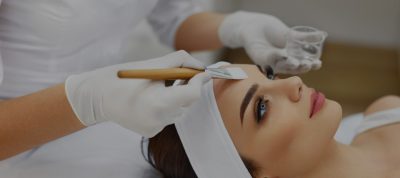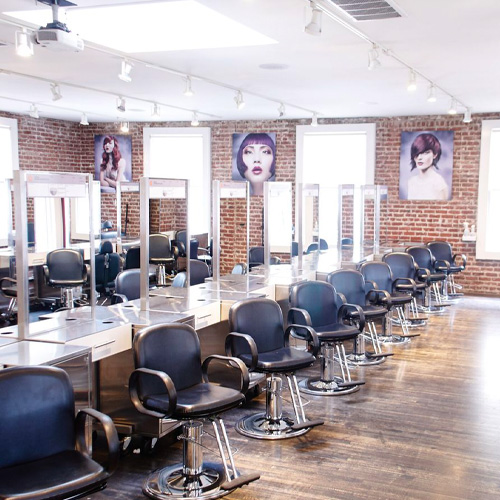In the world of beauty and skincare, achieving healthy, glowing skin requires more than just good products—it involves a deep understanding of how the skin functions, what it needs, and how to properly care for it. This is where esthetics training comes in. Whether you’re a skincare enthusiast looking to advance your knowledge or someone aspiring to become a professional esthetician, proper esthetics training is the foundation for skincare success.
Here’s why esthetics training is crucial for mastering skincare and achieving long-term results.
1. Comprehensive Knowledge of Skin Anatomy and Physiology
One of the key components of esthetics training is learning about the anatomy and physiology of the skin. The skin is the body’s largest organ, and understanding its structure, functions, and various layers is essential to treating it effectively.
- Skin Types and Conditions: Esthetics training teaches you how to identify different skin types (oily, dry, combination, sensitive) and conditions such as acne, rosacea, hyperpigmentation, and aging. Understanding these allows you to tailor treatments to individual needs.
- Understanding Product Ingredients: With a solid knowledge of how the skin works, estheticians can also understand which ingredients are best for specific skin concerns. Esthetics training helps you learn how ingredients like retinol, hyaluronic acid, peptides, and antioxidants affect the skin and how to incorporate them into a skincare routine.
2. Expertise in Professional Skincare Treatments
Esthetics training gives you hands-on experience in performing a wide range of professional skincare treatments that go beyond typical at-home care. From facials to chemical peels, estheticians are trained to perform treatments that target deeper skin issues and provide longer-lasting results.
- Facials: Estheticians are skilled in giving customized facials that address specific skin concerns, such as hydration, anti-aging, or acne. Proper training ensures that these treatments are effective and safe.
- Advanced Treatments: Training also includes advanced treatments like microdermabrasion, dermaplaning, LED therapy, and chemical peels. These treatments require specialized knowledge and techniques to ensure optimal results without damaging the skin.
- Massage Techniques: Estheticians also learn facial massage techniques that promote lymphatic drainage, improve circulation, and relax facial muscles, contributing to overall skin health and appearance.
3. Ability to Perform Safe Extractions
One of the most beneficial aspects of professional skincare is the extraction of blackheads and clogged pores. However, extractions must be done carefully to avoid skin damage or infection. Esthetics training teaches the proper techniques for performing extractions safely and effectively.
- Sanitation and Hygiene: Estheticians are trained in maintaining proper sanitation and hygiene practices to prevent infections and ensure that treatments are done in a sterile environment.
- Minimizing Scarring: With the right extraction techniques, estheticians can minimize the risk of scarring or irritation that can result from improper extractions at home.
4. Understanding of Skincare Trends and Technology
The beauty industry is always evolving, with new trends and technologies emerging regularly. Esthetics training keeps you up-to-date on the latest innovations, from high-tech treatments to new product formulations.
- Cutting-Edge Tools: Estheticians are trained in using the latest tools and equipment, such as LED light therapy devices, radiofrequency machines, and microneedling tools. These technologies enhance treatment results and can address a wide range of skin concerns.
- Trendy Treatments: From glass skin facials to cryotherapy, estheticians learn about the latest beauty trends and how to incorporate them into their practice, allowing clients to experience the most current and effective treatments available.
5. Holistic Approach to Skincare
Beyond just treating the surface, estheticians are trained to take a holistic approach to skincare. This means considering lifestyle factors such as diet, stress, and environmental exposure when addressing a client’s skin concerns.
- Consultations and Personalized Plans: Esthetics training includes conducting thorough skin consultations to understand a client’s concerns, habits, and skin history. This allows estheticians to create personalized treatment plans that address the root cause of skin issues.
- Education for Clients: Estheticians also serve as educators, teaching clients how to maintain their skin health at home. Proper training equips them with the knowledge to recommend the right products and routines based on individual skin needs.
6. Career Opportunities in a Growing Industry
The beauty and wellness industry is rapidly growing, with increasing demand for skincare professionals. Esthetics training opens the door to numerous career opportunities in various settings.
- Spas and Salons: Many estheticians work in spas or salons, offering a variety of skincare treatments to clients looking to enhance their skin’s health and appearance.
- Medical Esthetics: Some estheticians choose to specialize in medical esthetics, working alongside dermatologists or in med spas to provide advanced treatments such as laser therapy, chemical peels, or injectables.
- Product Development and Sales: Estheticians can also work in product development, helping to create new skincare products based on their in-depth knowledge of skin types, conditions, and ingredients.
7. Building Client Trust and Loyalty
Esthetics training is not just about learning technical skills—it’s also about building relationships with clients. Estheticians are trusted skincare professionals who provide personalized advice and guidance, making them valuable to clients looking for long-term skincare solutions.
- Client Confidence: Proper training builds an esthetician’s confidence, allowing them to recommend the best treatments and products for each client’s unique skin concerns.
- Repeat Business: When clients see real, lasting improvements in their skin thanks to professional treatments and expert advice, they are more likely to return for regular facials and treatments, building a loyal clientele.
Conclusion
Esthetics training is key to skincare success because it provides in-depth knowledge of the skin, teaches professional treatment techniques, and offers hands-on experience with cutting-edge technologies and trends. Whether you want to become a licensed esthetician or deepen your skincare knowledge, proper training is essential for delivering safe, effective treatments that lead to healthier, more radiant skin. By investing in esthetics training, you’ll be equipped to offer personalized, high-quality care that meets the growing demands of today’s skincare industry.












